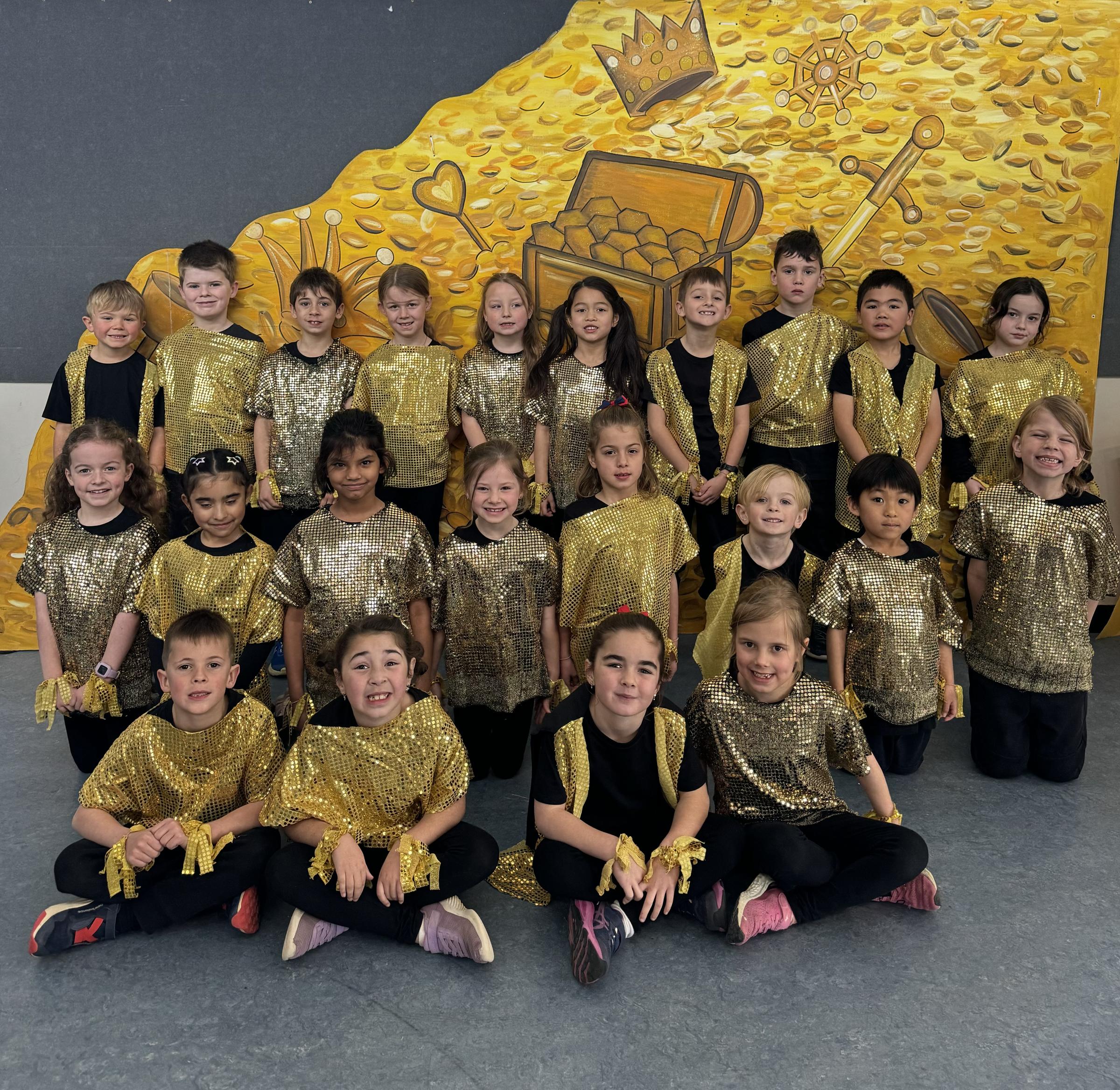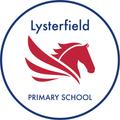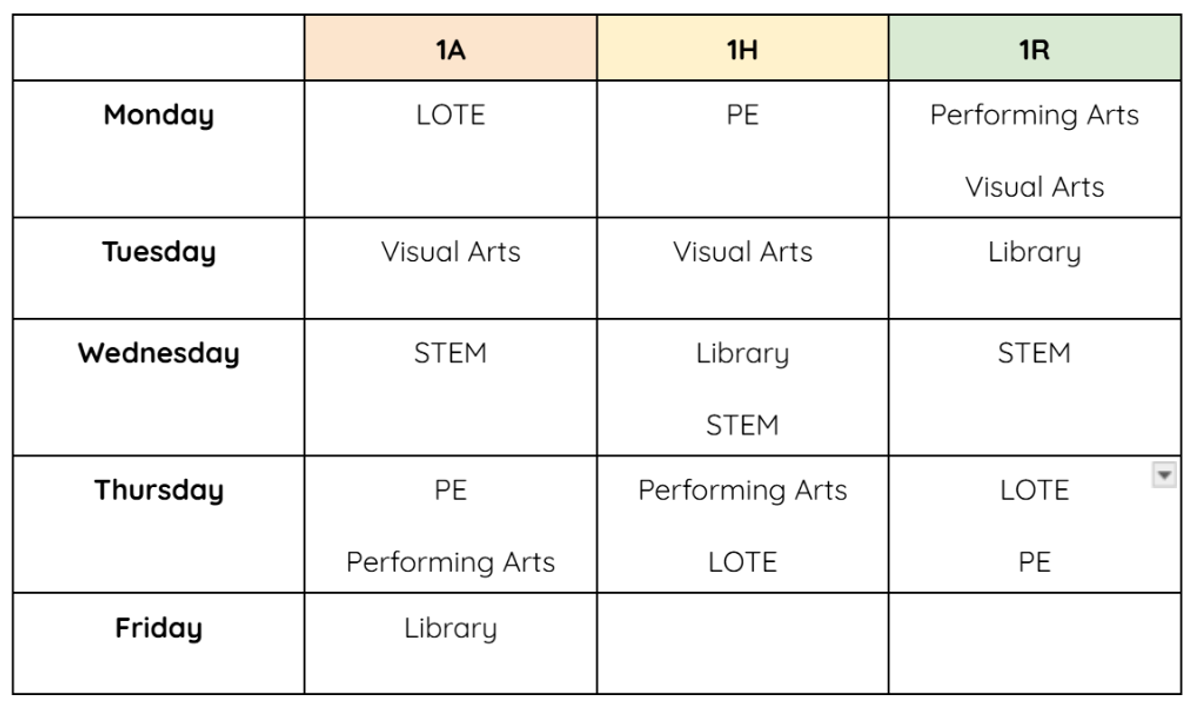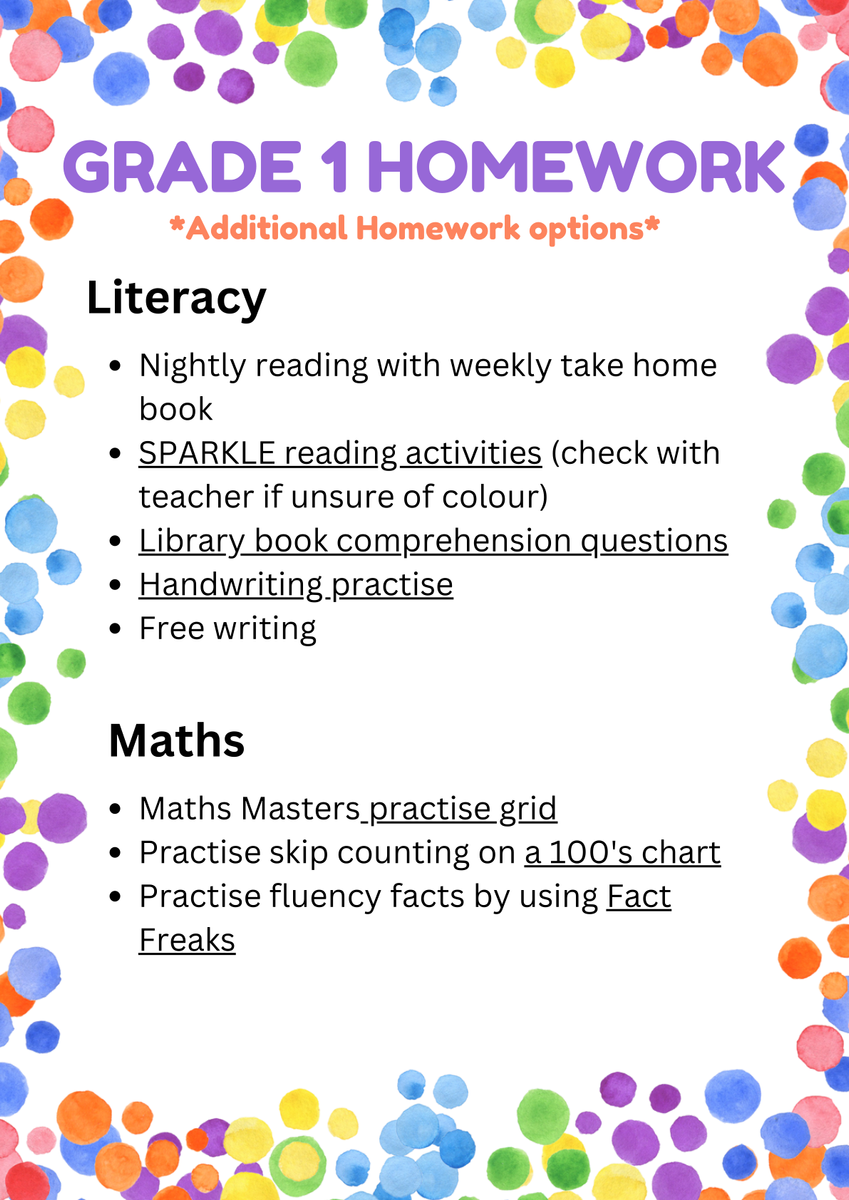Grade 1 News

📅 Important Dates & Reminders
All important dates and events are available on our Compass Calendar. Please check the calendar regularly to stay up to date.
Upcoming Dates and Key Information
Tuesday 4th November - Public Holiday
Monday 10th November - Curriculum Day
Friday 14th November - Scienceworks Excursion
Friday 28th November - P-2 House Athletics Day
Wednesday 3rd December - Market Day
Friday 5th December - Colour Run
Tuesday 9th December - Meet the Teacher (2026)
Wednesday 10th December - Christmas Concert
Friday 12th December - Meet the Teacher (2026)
Thursday 18th December - Last day of school for students
Friday 19th December - Curriculum Day
Library
Please refer to the timetable below for your child’s library day. Ensure your child brings their library bag each week so they can borrow books.
Take-Home Folders
Please remember to send your child’s take-home folder to school every day.
Homework
For homework in Grade 1 the expectation is that students will read their take-home book to an adult each day. Every student will receive a new book from their classroom on a Monday. Students will need to return their previous book before receiving a new book.
Here are some optional activities:
Learning in Action
📖 Literacy
Word Work
This term, students will be busy refining and reviewing lots of codes and spelling patterns they have learned this year, and they will also be introduced to many new codes. Some of these include:
-ee/ea
-igh
-ough
-oa/oe
-ar
-or
-aw/au/or
-er/ir
Students will engage in their usual Word Work routines where they practise decoding words and spelling them on their whiteboards.
Sentence Level Writing
This term, Grade 1 will be learning all about developing their sentence skills. Students will practise writing different types of sentences, statements, questions, commands, and exclamations, using pictures and stories as inspiration. They will also learn how to extend their ideas by completing sentences with joining words such as but, because, and so to create compound and complex sentences. In addition, students will practise using sentence starters with words like before, after, if, and when to add more detail to their writing (e.g. “After we clean our teeth, …”). To build accuracy, students will also work on unscrambling sentences, making sure the first word is always clear and correct.
Handwriting
Students have now learnt all letters of the alphabet and will be revising each one multiple times throughout the term to improve their letter formation and overall quality of handwriting.
Literature
This term, Grade 1 students are exploring narratives through the book The Boy Who Tried to Shrink His Name. They’ll learn about characters, settings, and plots, notice how culture is shown in stories, and compare character traits. Students will also build their vocabulary and develop their writing by practising prepositions, adverbs, and expanding sentences with extra detail.
Grade 1 students are also reading Jetty Jumping as they continue exploring narratives. They’ll look closely at the features of stories, discussing characters, settings, and the sequence of events, and even try innovating on parts of the text to make it their own. Along the way, students will build their vocabulary, practise joining sentences with and, and finish the unit by writing their own simple narrative inspired by the story.
Knowledge Rich
This term, students will be engaging in three separate units to develop their knowledge of the world around them.
Changing Families
The Changing Families unit aims to help Year 1 students explore the differences in family structures and roles both in the present and the past. Students will learn about various family types and compare them with families from previous generations. They will examine the changes and continuities in family life, daily routines, and traditions over time. Additionally, students will investigate the importance of caring for places and spaces that are significant to them and consider how they can positively influence the future.
By unit's end, students will:
- Identify and classify various family structures (e.g., nuclear, single-parent, extended) via descriptions and illustrations.
- Identify common roles for family members, noting those that reflect their family.
- Compare past and present family activities and traditions.
- Discuss historical changes in daily life at home and school.
Astronomy
In this unit, students will be introduced to the solar system, our home in space. They will learn that Earth, the planet on which we live, is just one of many different celestial bodies within the solar system. They will learn how the sun, the stars, the moon, and the other planets relate to the earth (given its position in space). Students will learn that the sun is a giant star as well as a source of light, heat, and energy for the earth. They will also learn about the earth’s orbit around the sun, and how the earth’s own rotation on its axis leads to the phenomenon of day and night. Part of this unit is focused on the history of space exploration and the missions to the moon. Students will learn about NASA, the Space Race, the Apollo missions, and what it takes to be an astronaut. Students will get a good introduction to the basics of astronomy through this unit.
Different Lands, Similar Stories
This unit will introduce students to three themes in folktales that have been told to children for generations, using variations from different lands or countries. By listening to these stories, students will increase their vocabulary and reading comprehension skills, be exposed to different places and cultures from around the world, and learn valuable universal lessons. This unit provides an opportunity to connect to different cultures and in some cases explore folktales from students’ own cultures.
This unit is best understood in thirds. The first three lessons are all stories about good people who are treated unfairly and ultimately find happiness, with variations set in France, Egypt, and Ireland. The next three lessons are folktales about supernaturally small characters. These include variations set in England, Denmark, and Japan. The last three lessons are all folktales about cunning animals who try to trick children, with variations set in Germany, China, and Botswana. Reading these folktales and fairy tales will help students develop a strong foundation for their understanding and enjoyment of similar stories from different lands.
➗ Maths
As we head into the final term of Grade 1, students will focus on key areas of mathematics. These include Data, Location, Measurement, Shapes, and a revisit of Addition and Subtraction.
1. Data: Collecting and Interpreting Information: students will learn to collect and display data using simple graphs (like pictographs and bar graphs). They'll explore how to compare and interpret data in everyday situations.
2. Location: Directions and Positions: children will practise using terms like left, right, forward, and backward to describe positions and movements. They'll develop spatial awareness through map activities and simple directions.
3. Measurement: Time and Ordering: students will explore time, learning to tell the hour on an analogue clock and understand the order of daily events. They'll also compare the lengths of time for activities.
4. Shapes: 2D and 3D Figures: children will revisit 2D shapes (like squares and circles) and explore 3D shapes (like cubes and spheres). They'll sort and describe shapes based on their properties.
5. Addition and Subtraction: Strengthening Basic Skills: students will continue practicing addition and subtraction up to 20, using objects and mental strategies to solve simple problems.
Wellbeing
In Year 1, the Gender and Identity focus within the Resilience, Rights and Respectful Relationships (RRRR) program supports students to build a positive sense of self and to respect diversity among their peers.
Key learning intentions include:
Identity development: Students recognise their own strengths, interests, and qualities, and begin to describe what makes them unique.
Fairness and respect: Students explore the concept that everyone has the right to be treated fairly, regardless of gender.
Challenging stereotypes: Students identify and question simple gender stereotypes, such as assumptions about who can participate in certain roles, activities, or games.
Celebrating diversity: Students learn to value differences among individuals and understand that diversity is a positive aspect of their classroom and community.
Respectful interactions: Through discussion, role play, and reflection, students practise kindness, inclusion, and encouragement towards others.
The overall goal is to nurture respect, equality, and inclusion from an early age, laying the foundation for positive relationships and a strong sense of identity.
From the Grade 1 teachers,
Miss Albanese, Ms Holmes and Miss Kitteringham


